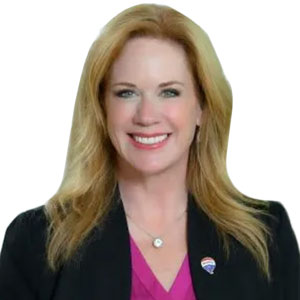Brokerages have not traditionally been at the cutting edge of change.
Despite new technology and market disruptions, the process of selling a home has mostly remained unchanged: sign a listing agreement, find a buyer, close the deal.
But on Aug. 17, the nuts and bolts of how brokerages do business will be twisted and turned for the first time in ages. While brokerage leaders have publicly — and predictably — expressed optimism about adapting to the changes, they’ve acknowledged not being sure what those changes will bring.
In advance of the deadline, eXp Realty unveiled new listing and buyer agreements, which CEO Leo Pareja described as the company’s “best interpretation of the rule changes.”
Like a parent trying to explain black holes to an inquisitive child, brokerages have had to prepare agents for the impending new practices despite being unsure of some of the mechanics.
The actual changes are “not horribly complicated as a concept,” said Jed Garfield, who runs New York City-based brokerage Leslie J. Garfield, but parsing the legalese on all possible facets has been “exasperating.”
“Running a business and dealing with this, it’s just a lot of work,” Garfield said.
Training ramps up
While executives have been happy to claim their agents are ready for Aug. 17, pinning brokerage leaders down on specifics has been like stabbing Jell-O with a fork.
Compass said that the company “ran weeks of intensive programming” after the news of the NAR settlement broke in March, and that agents feel prepared to “better articulate their value as a result of the changes.”
Corcoran CEO Pam Liebman said the firm “is always focused on ensuring our agents are the best prepared and educated in the industry, regardless of the changes or challenges that come our way,” but declined to go into detail on what that education was.

On RE/MAX’s second-quarter earnings call, CEO Erik Carlson said his company has been relying on its “network of broker-owners that are providing training on a day-in and day-out basis.”
But what is the brokerage giant telling agents about buy-side commission rates or field practices? A JPMorgan analyst pressed president Amy Lessinger twice for specifics, but Lessinger demurred, noting that there is no hard guidance on commission rates and many RE/MAX agents are already “seasoned in navigating these discussions.”
Elliman provided the most detailed information. A spokesperson said that the company has updated listing agreements and buyer agreements, and that the firm has run a Zoom series and “daily interactive role plays” to prepare agents for conversations about commissions.
Some national brands have to keep their practices close to the vest because they’re navigating individual settlements in addition to whatever rules come down from NAR and local trade groups.
Bearers of bad news

Brokerages are also left with the unenviable task of explaining to agents that commissions will not be such a given anymore.
Beyond the headline changes of buyer agreements and decoupled commissions, some technical changes may come as a surprise to agents. In its most recent one-pager, NAR again clarified that “buyer brokers cannot accept compensation from any source that is more than the amount agreed to between the buyer broker and buyer.”
“The nuance about not being able to have the seller cover the spread is a problem,” Elliman’s Frances Katzen said, calling the decoupled structure “counterintuitive.”
Compass’ Samantha Shuman said her team plans to roll out buyer agreements as short as a single day before introducing longer-term contracts to “alleviate discomfort” between buyers and agents.
For brokerages, making sure their agents get these new changes right can be more important than placating them.

“Brokerages are concerned because they all have agents that will struggle to explain these new requirements in the correct way, and will ultimately share in the liability if not done so,” Elliman broker Jonathan Conlon said.
With Aug. 17 at hand, agents and brokerages were left to wait and see if their practice reps would translate to the live game.
“I mean, it is going to go into effect,” Katzen said of the settlement’s impact. “I can’t answer it, because I’m not living it yet.”
Read more



